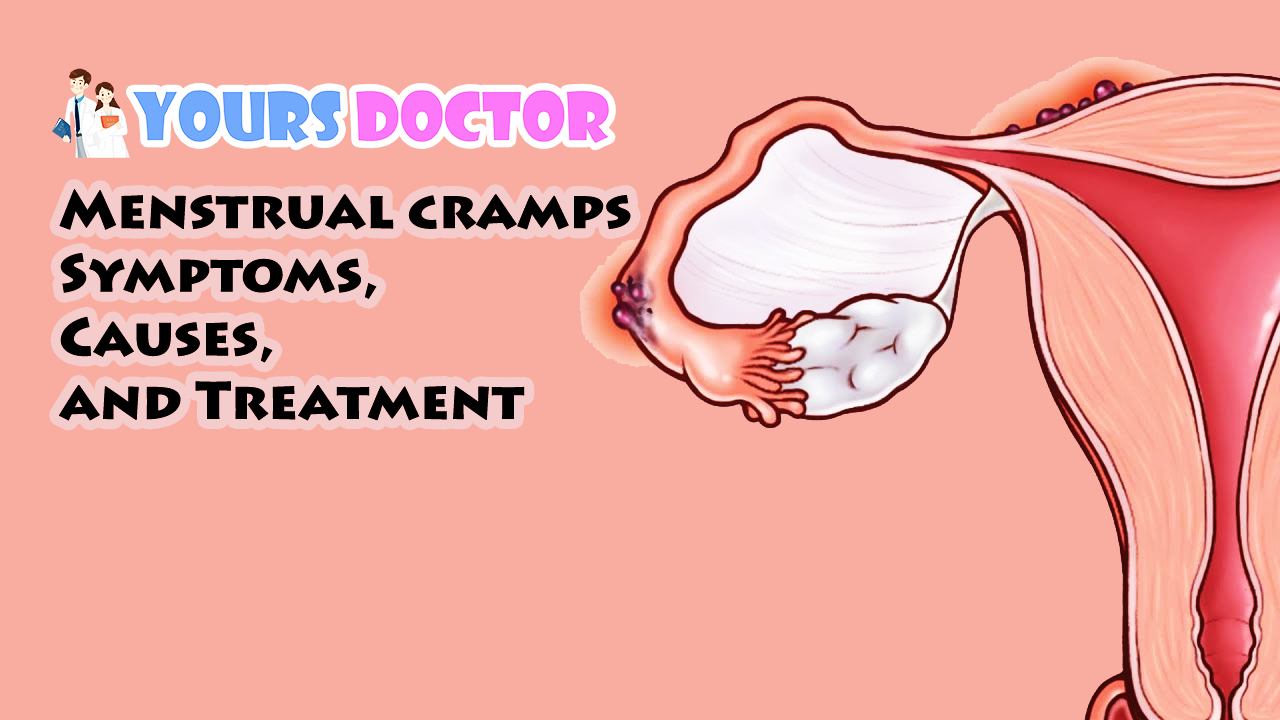Menstrual cramps
Menstrual cramps, also known as dysmenorrhea, are a
common symptom experienced by many women during their menstrual period.
These cramps are caused by the contraction of the uterus as it sheds its
lining. Symptoms can include pain in the lower abdomen, back, and thighs, as
well as bloating, fatigue, and headaches. Over-the-counter pain medications
such as ibuprofen and naproxen can help to alleviate the discomfort associated
with menstrual cramps. Some women
may also find relief from using heating pads or taking warm baths. In more
severe cases, a doctor may prescribe hormonal birth control to reduce the
severity of cramps. It is always recommended to consult with a doctor if the
cramps are severe or accompanied by other symptoms.
Menstrual Symptoms
In addition
to cramps, there are a variety of other symptoms that can occur during a
menstrual period. These can include:
· Heavy or light
bleeding: The amount of bleeding can vary from person to person and can change
throughout a person's life.
· Fatigue: Many women
report feeling tired or sluggish during their period.
· Mood changes:
Some people may experience irritability, sadness, or other emotional changes
during their period.
· Nausea or
vomiting: Some women may feel sick to their stomach during their period.
· Headaches or
migraines: Hormonal changes can trigger headaches or migraines in some people.
· Bloating or
water retention: Hormonal changes can also cause the body to retain water,
leading to bloating or swelling.
· Acne: Hormonal
changes can cause an increase in oil production, leading to acne breakouts.
These
symptoms can vary in severity from person to person, and some people may not
experience any symptoms at all. It is always recommended to consult with a
doctor if the symptoms are severe or accompanied by other symptoms
Menstrual Treatment
There are
several treatment options available for managing menstrual symptoms, including:
· Over-the-counter
pain relievers: Ibuprofen, naproxen and aspirin can help to alleviate cramps
and other pain associated with menstruation.
· Hormonal birth
control: Birth control pills, patches, injections, or intrauterine devices
(IUDs) can help regulate menstrual cycles and reduce cramps, heavy bleeding,
and other symptoms.
· Heat therapy:
Using a heating pad or taking a warm bath can help to relieve cramps and other
pain.
· Lifestyle
changes: Eating a healthy diet, getting regular exercise, and managing stress
can help to alleviate menstrual symptoms.
· Herbal remedies:
Some women find relief from menstrual symptoms by using herbal supplements such
as ginger, turmeric, and evening primrose oil.
· Prescription
medications: In severe cases, a doctor may prescribe medications such as
tranexamic acid to reduce heavy bleeding, or GnRH agonists to reduce cramps and
other symptoms.
It is always
recommended to consult with a doctor before starting any new treatment,
especially if you are already taking other medications. Your doctor will be
able to recommend the best treatment options for you, based on your individual
symptoms and medical history.
Menstrual Causes
Menstrual cramps and other symptoms are caused by
hormonal changes that occur during a menstrual cycle. The menstrual cycle is
regulated by a complex interplay of hormones, including estrogen and
progesterone, which are produced by the ovaries.
During the
first half of the menstrual cycle, estrogen levels rise, causing the lining of
the uterus to thicken. In the second half of the cycle, the ovaries release an
egg and the hormone progesterone causes the uterus to contract, preparing it
for a potential pregnancy. If the egg is not fertilized, the uterus sheds its
lining, causing a period. The contraction of the uterus during this process can
cause cramps and pain.
In some
cases, menstrual symptoms may be caused by an underlying medical condition such
as endometriosis, fibroids, or adenomyosis. These conditions involve abnormal
growth of the uterine lining or abnormal muscle contractions of the uterus.
It's worth
mentioning that irregular periods,
heavy bleeding, and other menstrual symptoms can also be a sign of a more
serious condition, such as polycystic ovary syndrome (PCOS) or thyroid
disorders. If you have unusual or severe menstrual symptoms, it's important to
talk to your doctor. Your doctor can help identify the underlying cause and
provide appropriate treatment.
Menstrual Prevention
There are
several steps you can take to prevent or reduce menstrual symptoms:
1. Exercise
regularly: Regular physical activity can help to reduce cramps and other pain
associated with menstruation.
2. Eat a healthy
diet: Eating a diet that is rich in fruits, vegetables, and whole grains can
help to reduce menstrual symptoms and promote overall health.
3. Manage stress:
Stress can exacerbate menstrual symptoms, so it's important to find healthy
ways to manage stress, such as through exercise, meditation, or yoga.
4. Avoid smoking
and excessive alcohol consumption: Smoking and excessive alcohol consumption
can worsen menstrual symptoms, so it's best to avoid them.
5. Maintain a
healthy weight: Being overweight or underweight can affect menstrual cycles and
may worsen menstrual symptoms.
6. Hormonal birth
control: Hormonal birth control can help regulate menstrual cycles and reduce
cramps, heavy bleeding, and other symptoms.
7. Consider herbal
supplements: Some women find relief from menstrual symptoms by using herbal
supplements such as ginger, turmeric, and evening primrose oil.
8. Consult with a
doctor: If you have severe or unusual menstrual symptoms, it's important to
talk to your doctor. They can help identify the underlying cause and provide
appropriate treatment.
It is
important to note that every person is different and what works for one person
may not work for another. It is always recommended to consult with a doctor
before starting any new treatment, especially if you are already taking other
medications.
Read
more
Searching Tags,
menstrual
cramps,period cramps,menstrual cramps relief,home remedies for menstrual
cramps,menstrual cramps explained,treatment,premenstrual syndrome signs and
symptoms,menstrual cycle,treatment for mestrual pain,menstrual
pain,cramps,period cramps relief,relieve menstrual cramps,relieve menstrual
cramps instantly,muscle cramps treatment,menstrual cramps relief home
remedies,what are menstrual cramps?,menstrual cramps massage,painful menstrual
cramps







0 Comments